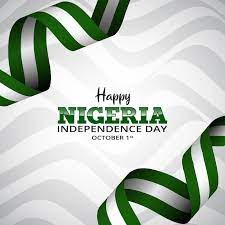NIGERIA AT 62
We Felicitate With Nigeria As She celebrates Her 62nd year of independence.
Here are a few things to know about her journey;
- Nigeria was formed in 1914.The land area known today as Nigeria was formed in 1914 when colonial authorities merged the Northern and Southern Protectorates of Nigeria, to form the amalgamated Protectorate and Colony of Nigeria. This merger brought together over 400 ethnic groups and tribes into what was then the largest British colony in the world. The name “Nigeria” is also derived from colonial sources.
- Nigeria gained independence from colonial rule in 1960.
Nigeria gained independence from the British empire in 1960, initially adopting a British style of government with Abubakar Tafawa Balewa as the first Nigerian head of government (prime minister). The country then had a population of over 45 million people.
- Nigeria’s oil boom began in the 1970s.
Oil profitability in Nigeria was greatest during the 1970s when it became the wealthiest country in Africa. Within two years, state profit increased by almost 50%, to an all-time high of N5.3 billion in 1976. Nigeria bolstered profits when it joined the Organization of Petroleum Exporting Countries (OPEC) in 1971, and the discovery of oil is widely believed to have influenced the course of the civil war.
- A Nigerian was the first African recipient of the Nobel Prize for Literature.
Wole Soyinka was the first African to win the Nobel Prize for Literature, which he won in 1986, and he is also a prominent social critic and political activist. As an activist, he has been a voice for justice, freedom, and the end of tyranny. He has risked his life again and again to articulate the principles that provide the foundation for human rights, both in his native Nigeria and around the world.
- Nigeria won its first Olympic gold medal in 1996.
Nigeria’s most successful Olympic outing was the 1996 Olympics, with the men’s football team winning Gold, and Chioma Ajunwa also winning a Gold medal in the women’s long jump event. In total that year, Nigeria won two Gold medals, one silver medal, and three bronze medals.
- Nigeria returned to civilian rule in 1999.
The 1999 transition of Nigeria from military to civilian, democratic government, was a defining moment in Nigerian history, representing the beginning of the longest, uninterrupted government since Independence in 1960. The presidential election took place in February 1999, and Olusegun Obasanjo, who as head of state in 1976–79 had overseen the last transition from military rule, was declared the winner.
- Nigeria became Africa’s largest economy in 2013/14.
In April 2014 — looking back at the previous financial year — the statistics bureau of Nigeria confirmed the rebasing of the Nigerian economy’s gross domestic product (GDP) to $509.9 billion. This placed it well above South Africa’s nominal GDP of $322 billion and elevated Nigeria to the position of the largest economy in Africa.
- Nigerians became the first Africans to qualify for the Olympics bobsledding event in 2018.
Three Nigerian-American women — Seun Adigun, Ngozi Onwumere, and Akuoma Omeoga — made history and their Olympic dreams come true by being the first-ever African bobsled team to qualify for the Olympics. They were also the first Nigerian athletes to compete in a Winter Olympics event.
- Nigeria sets new record at common wealth UK in 2022
Nigeria’s Tobi Amusan won the gold medal in the women’s 100m hurdles at the 2022 Commonwealth Games. Tobi Amusan became the first Nigerian athlete to win a World Athletics Championship gold when she stormed to victory in the women’s 100m hurdles in Oregon last month. The 25-year-old, who had obliterated the world record in an astonishing semi-final where she clocked 12.12sec, powered over the line at Hayward Field in 12.06sec. Then in Birmingham, United Kingdom on Sunday, Amusan showed her outstanding performance in Oregon was not a fluke.
We at Pristine School of Management Felicitates with Nigeria on this memorial day.


